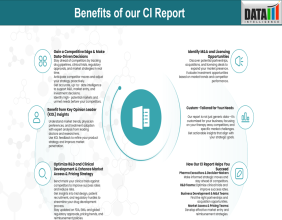Highlights
Harrods experienced an attempted breach, prompting immediate security actions while maintaining store and online availability.
Marks & Spencer (LSE:MKS) encountered severe disruption due to a ransomware incident attributed to a digital group.
The Co-op (LSE:CPG) preemptively disabled IT systems amid suspected insider-related cyber activity.
The retail sector, a core component of consumer markets, has increasingly encountered cybersecurity challenges amid broader digital expansion. With major UK retailers operating under the FTSE indices, cybersecurity has become integral to maintaining operational stability. Growing dependence on technology has introduced vulnerabilities, resulting in several incidents impacting companies such as Harrods, Marks & Spencer (LSE:MKS), and the Co-op (LSE:CPG).
Harrods Responds to Attempted Intrusion
Harrods recently addressed a cybersecurity issue that involved unauthorized attempts to access its internal systems. Immediate countermeasures were enacted by the internal IT team, including restricting internet access to prevent further system exposure. Despite the disruption, Harrods continued operations across both its physical store and online platform. The company reported no evidence indicating unauthorized access to sensitive data during the incident. These developments have spotlighted the evolving methods used to breach enterprise systems in the retail environment.
Cyber Attack Disrupts Marks & Spencer Operations
Marks & Spencer (LSE:MKS) experienced substantial operational interruptions following a ransomware event that began impacting its systems earlier in the month. The disruption caused widespread delays, halting online order processing and limiting product availability across physical locations. It was later confirmed that the ransomware was linked to a digital entity identified as Scattered Spider. Investigations into the event are underway by the cybercrime division of the Metropolitan Police. The scale of the disruption has placed increased scrutiny on incident readiness protocols across UK retail operations.
Co-op Implements Preventive Measures Following Suspicious Activity
The Co-op (LSE:CPG) took precautionary action by disabling segments of its IT infrastructure following a suspected cyber threat. The response aimed to safeguard operational integrity and prevent unauthorized access. Internal communications subsequently instructed team members to maintain active video connectivity, hinting at concern regarding possible insider involvement. This approach emphasized internal transparency and heightened monitoring during the incident. The organization’s response framework reflects the growing awareness of internal and external cybersecurity vulnerabilities within retail cooperatives.
Industry-Wide Implications for Retail Cyber Defense
The recent series of cybersecurity events across key UK retailers highlights the pressing need for enhanced digital protection. These incidents suggest ongoing stress on existing IT frameworks and underline the necessity of continuous improvement in threat detection and response capabilities. Routine system audits, timely software updates, and employee awareness programs remain central to reinforcing cybersecurity across the sector. The retail industry must adapt swiftly to evolving digital threats while maintaining service continuity and data integrity.
Collaborative Investigations and Law Enforcement Support
Addressing cybersecurity threats in the retail industry involves coordination between commercial entities and national cybersecurity units. Investigative authorities are actively involved in tracing the origins of recent attacks and mitigating further impact. Transparent cooperation between retailers and law enforcement is essential for the effective identification of perpetrators and the preservation of data security. As cyber threats grow in sophistication, industry-wide collaboration is becoming increasingly vital in developing resilient digital ecosystems.



